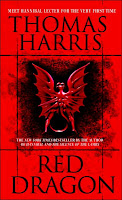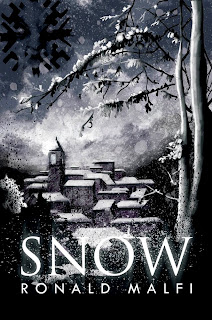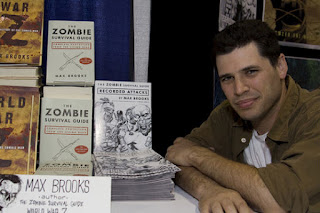(Long time readers: This is part of a class assignment on real life psychos. I've never really liked covering True Crime stuff because I have a very different emotional reaction to real world violence as opposed to fictitious violence. Still, I think it's an interesting story and I get to talk a little about how psychos work in fiction vs. in real life. Enjoy!)
Issei Sagawa killed and consumed a woman and never went to
jail for it. He lives in a small Japanese town writing books and making art and
generally not bothering anyone. I don't know if he is actually insane and doubt
he's much of a threat anymore but there's something both pitiable and monstrous
about him.
Sagawa was born in 1949 to a wealthy family in Kobe, Japan.
Despite the fact that he looked pretty much like a normal guy, he described
himself as being frail, underformed, and sickly, which made me wonder if he had
some sort of body dysmorphia issues at the root of all his psychosis. He grew
fixated on western women as they represented an inversion of his self-image. As
he said in his Vice interview, “I am weak and short. Western women are tall and
beautiful.”
He also became sexually fixated on the idea of cannibalism.
It's not apparently an unheard of fetish and there are videos out there of people eating human-shaped candies and describing devouring life and gaining strength from it. I suspect that Sagawa shares this fetish and he took it as far as
a person can possibly go.
After a couple brushes with the law, including an attempted
rape charge, Sagawa left Japan at 28 to study comparative literature at the
Sorbonne. As I was putting my research material together, I found myself
impressed by the man as I flipped through his photos from his time in Paris. He
looked like the kind of smart, well-dressed, confident young man who would wind
up in Paris studying Truth and Beauty. I was impressed and a little bit jealous
of the romanticism of his life at that point.
On June 11th 1981, Sagawa invited a Dutch student named
Renée Hartevelt to his apartment under the pretext of translating some German
poems. As she was seated in a chair, Sagawa shot her in the back of the head
with a small-caliber rifle. After she died, Sagawa raped her and began eating
her body.
The thing that trips me out about the scenario is that it
sounds like he had a shot with her. Come on, son. No one goes to some dude's
house just to translate poetry. The point where cognitive
dissonance kicks in for me is here. Sagawa was clearly into her and it seems
like he had a shot. At that point my instinct would be to pour a couple drinks
and ask about her major but his thought process was all "kill, fuck, eat."
That, my friends, is messed up.
Anyway, he carves and eats parts of her body. It's pretty
gross and I'll spare y'all the details, but suffice to say he gets worried that
the smell of rotting meat will be noticed so he carves the body up, packs it in
a couple suitcases, and take them to a nearby lake for disposal. He's caught,
the police arrest him, and he's quickly ruled insane. The French populace are
outraged at the case and there's some debate about what to do with Sagawa.
Before treatment even starts for Sagawa, the Japanese government step in and
extradite him back to Japan. For reasons I'm not entirely clear on, the
Japanese psychologists assigned to his case declare him "sane but
evil" and let him go. Aside from a couple kerfluffles, he's been a free man
ever since.
Sagawa has created a sort of cottage industry out of being a
celebrity cannibal. During the interview I watched with him, the camera cut
between whimsical drawings he drew to recreate the crime with photos of
Hartevelt's dismembered body. He's written books, acted in bizarre films,
created a repellent manga, and appears to have exploited his behavior into a
tidy living.
The structure of the interview both demonizes and humanizes
him. On one hand, he's a creepy little troll who ate a woman, makes money off
the crime, holds no real regret, and works out of an office where he keeps
photos of Hartevelt's body in cute little frames on his desk. On the other
hand, he's a lonely little outcast who longs for death, has no self-esteem, and
has been pretty ruthlessly exploited by the people who've come into his life
since he returned to Japan. The few TV shows he's done make him look less like
a monster and more as a man uncomfortable in his own skin and desperately seeking
approval. A couple of cute German backpackers traveled around the world on
Sagawa's dime, likely by exploiting his obvious attraction to them. The
weirdest moment in Sagawa's post-cannibal life is his turn as a pornographic
star. Some dirtbag pornographer hired a porn starlet to sleep with Sagawa on
film The girl had no idea who Sagawa was before performing on-camera. After the
act was over, the pornographer had Sagawa show her the photos from his crime
and explain what he'd done. You can see the girl crumbling in horror at the
revelation. The pornographer interviews the tearful girl in the car afterward
and she says “I understand that he’s full of insecurities. I think it’s selfish
to let his fantasies grow so wild. Or it’s like he’s lacking something.”
I chose Issei Sagawa for a couple reasons. Leaving aside the
obvious fact that I'm a total weeaboo geek, I was fascinated by a guy who
committed probably the biggest taboo in modern culture and suffered no real
punishment.
I also chose Sagawa because of how candid he is with his
internal life. Because he has his liberty and because so much of his life
involves fixating on himself, he hasn't developed all those weird power
fantasies other killers develop when they're left to rot in prison. He's
intelligent and articulate and more than a little bit sad, but when I found
myself being lulled into sympathy for him he would say or show something
horrible and remind you that the would would probably best be rid of him. In
other words, he's not a cardboard cut out fictional psycho but a nuanced and
deeply broken human being.
I also chose him because of the overtly sexual nature of his
crimes. Maybe it's my own prejudices but I tend to see almost all serial murder
as behavior of a corrupted sexuality. There's a reason killers target people
they're attracted to and a reason that most of the crime involve either
dominance or rape. People destroy what they want to fuck because they hate
anything that makes them feel lust because they hate themselves for being
unable to approach the person in a meaningful way. It's really just the logical
extreme extension of the typical misogyny you see every time some dude talks
shit about some girl.
Serial killers who kill just
because
are slasher movie villains. That's fine, I like a good
slasher flick as much as the next malformed child of the 80s, but they aren't
proper psychos. I believe that in a healthy, socially supportive society,
people who kill other people for reasons other than profit or temporary rage
are fundamentally aberrant. They're broken, usually by a combination of
chemistry and circumstance. It's easy and perhaps morally correct to simply
want to toss them down a deep dark hole and forget about them, but I tend to
see psychos as extreme extensions of toxic social attitudes we all buy into. A
sad little fetishist who fixates his sexuality on cannibalism the way that
Sagawa does is an interesting, if depressing, mirror held up to the darker
sides of human sexuality.















































